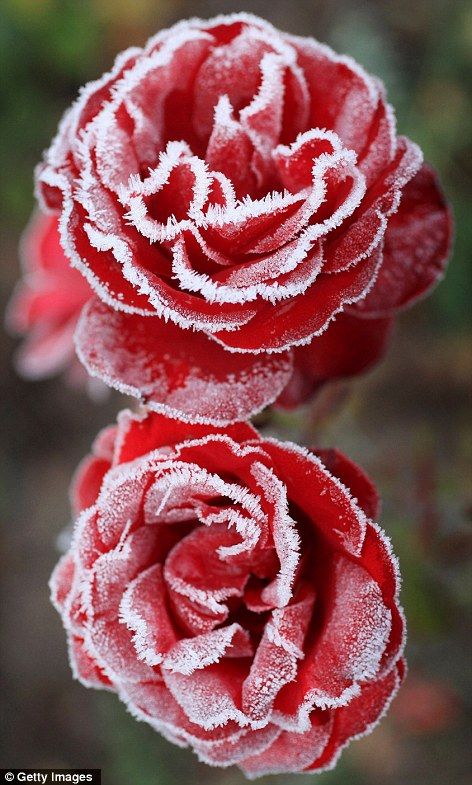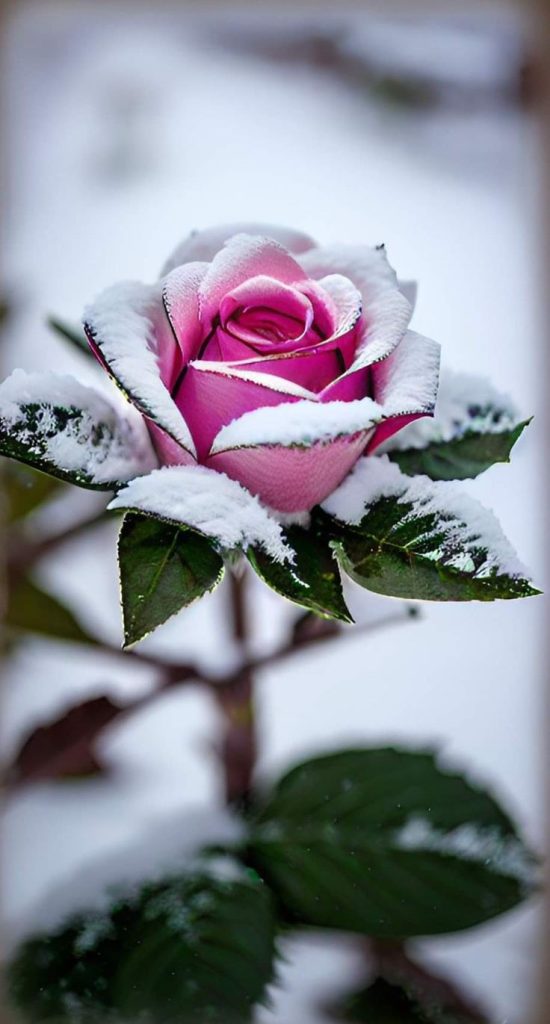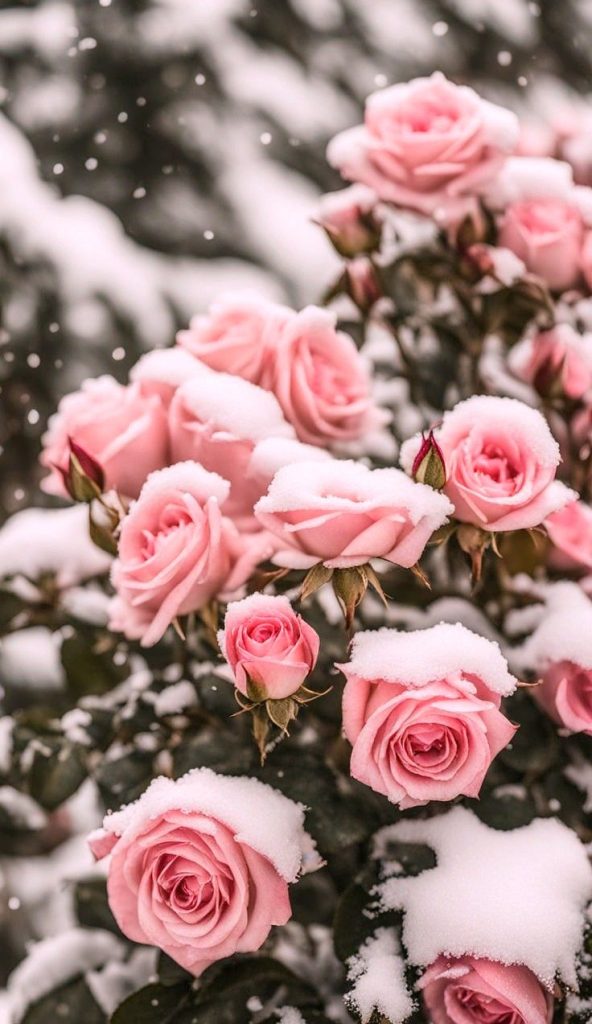As winter sets in, it’s essential to adapt your rose care routine to ensure your beloved flowers withstand the chilly temperatures and emerge thriving in the spring. Winter poses unique challenges for roses, from potential frost damage to decreased sunlight. In this guide, we’ll explore effective winter care techniques to keep your roses healthy and ready to bloom when warmer days return.








1. Mulching for Warmth and Protection
Solution:
Apply a generous layer of organic mulch around the base of your rose bushes. This acts as insulation, protecting the roots from extreme temperature fluctuations. Use materials like straw, pine needles, or shredded bark for effective mulching.
2. Pruning for Shape and Health
Solution:
Prune your roses in late winter to remove dead or diseased wood, improve air circulation, and maintain an appealing shape. Cut back long, leggy canes and remove any crossing branches. Trim the overall size to prevent wind damage.
3. Hydrating During Dry Spells
Solution:
While roses are generally dormant in winter, they still benefit from occasional watering, especially during dry periods. Ensure the soil around your roses stays moderately moist but not waterlogged. Deep watering once a month is usually sufficient.
4. Shielding Against Frost
Solution:
If your region experiences severe frost, consider providing extra protection for your roses. Construct a simple frame around each bush and cover it with burlap or frost cloth during particularly cold nights. This helps prevent frost damage to tender canes.
5. Preventing Disease Spread
Solution:
Cleanliness is crucial in winter to prevent the spread of diseases. Remove any fallen leaves around your roses, as they may harbor fungal spores. Apply a fungicidal spray before winter sets in to provide a preventive barrier.
6. Choosing Winter-Hardy Varieties
Solution:
When selecting roses for your garden, opt for varieties known for winter hardiness. Some roses, such as “Knock Out” or “David Austin” varieties, are better equipped to withstand colder temperatures and may require less intensive care during winter.
7. Applying Organic Fertilizer
Solution:
In late winter or early spring, apply a balanced organic fertilizer to encourage healthy growth when the growing season resumes. This ensures your roses receive the necessary nutrients for robust blooms.
8. Protecting Grafted Roses
Solution:
If you have grafted roses, protect the graft union by mounding soil around it. This shields the vulnerable area from winter winds and temperature extremes.
9. Keeping an Eye on Pests
Solution:
While pests are less active in winter, it’s still important to monitor for signs of infestation. Treat any pest issues promptly with environmentally friendly methods to avoid further complications.
Conclusion
Winter rose care is a critical aspect of maintaining a vibrant and healthy garden. By implementing these winter care techniques, you’ll provide your roses with the protection and support they need during the colder months. With a little attention and preparation, your roses will reward you with stunning blooms when spring arrives, adding beauty to your garden once again.
FAQs
- Is it necessary to prune roses in winter?
- Yes, pruning in late winter is essential to remove dead or diseased wood, improve air circulation, and maintain the overall health and shape of the roses.
- Can I use regular garden soil as mulch for my roses in winter?
- It’s best to use organic mulch materials like straw, pine needles, or shredded bark. These materials provide insulation and help regulate soil temperature.
- How often should I water my roses in winter?
- Watering frequency depends on local weather conditions. In regions with dry spells, it’s advisable to water roses occasionally, ensuring the soil stays moderately moist.
- Do I need to fertilize my roses in winter?
- No, it’s not necessary to fertilize during winter. Save fertilization for late winter or early spring to provide nutrients as the growing season begins.
- Are there specific varieties of roses that are more resilient to winter conditions?
- Yes, some varieties, such as “Knock Out” or “David Austin” roses, are known for their winter hardiness and may require less intensive care during colder months.